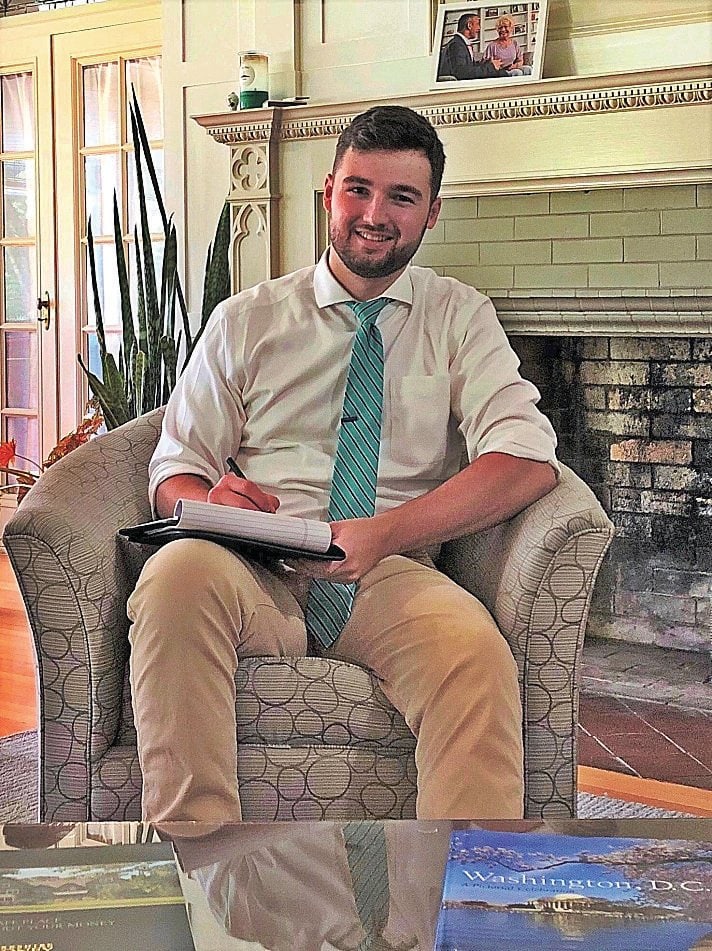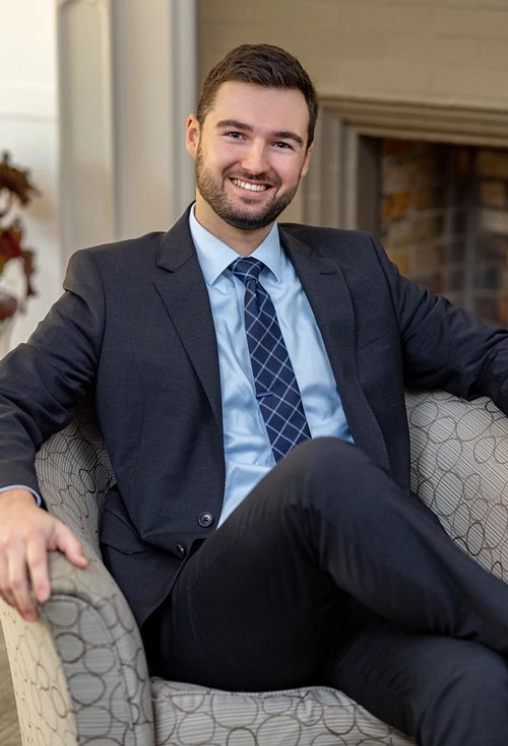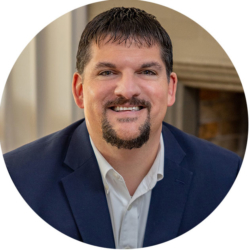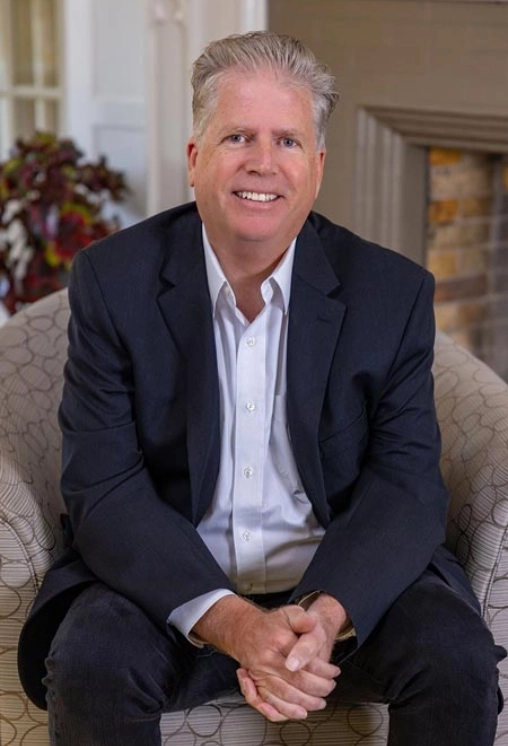Adviser Keeps Vigilant Eye on Assets, Also Scouts for Opportunities

Real Money: Straight-up Answers with Berkshire Money Management
DALTON — How can you tell when someone is going to have a future in the money business?
Probably if he’s buying stocks in his teens and earning an adviser’s license while a junior in college.
Nathan Tomkiewicz of Adams is a financial adviser with Berkshire Money Management, where he began as an intern at 19, working his way up while going to school; like his co-worker Lauren Russo, Tomkiewicz graduated from college a semester early to jump feet first into the business world.
The Berkshire Community College and Massachusetts College of Liberal Arts grad is “Berkshires through and through.” He loves living where he grew up and went to college. Tomkiewicz, 23, says he’s equally happy peering down upon his house from a snowmobile on a Mount Greylock overlook or taking in a round of golf or chasing largemouth bass – his personal best, 4.8 pounds.
Tomkiewicz earned a degree in business administration, but he says, “my real education came from working here.” When he was at MCLA, he structured his schedule to be at school as little as possible, taking night and summer classes so he could maximize work time.
The Eagle spoke with Tomkiewicz recently in the final installment of Real Money: Straight-up Answers with Berkshire Money Management, a Q&A series sponsored by the firm.
Q: What brought you to the business of financial planning?
A: It all started with my dad teaching me the importance of living below your means and also the importance in learning about finances and investing. For him, his avenue was real estate; he guided me toward this industry, investing in the stock market and working with people. He actually started cutting out articles about (BMM financial adviser) Zack Marcotte that were in The Berkshire Eagle. Zack started as an intern, and he went to BCC and then MCLA, and when he graduated, he got a job here. Berkshire Money Management was on my radar in high school, even before I knew what I wanted to do. I bought my first stock at 19, Amazon; I was hooked after that.
Q: What money lesson should be taught in school but isn’t?
A: For me, that would be the power of compound interest. Starting early matters so much. If you make about 7 percent on your money each year, in 10 years time, that money is going to double; and it doubles again and doubles again, every 10 years. That works on debt, too. If you go to school and you get $100,000 in debt and you have to pay 7 percent interest on that, if you don’t do anything, that’s going to be $200,000 in 10 years.
Q: What was it like as a young investor hearing the news of the pandemic and did it change your overall outlook on the market?
A: We were all sitting down on a Friday when New York announced it was shutting down. And then it was Illinois, Connecticut and New Jersey. It was scary. At the time, the case numbers were in the single digits. My first thought was, “We’re going to see something worse than the financial crisis.” We needed to make sure that we protect against a worse case for our clients, namely another Great Recession-type decline of stocks, of 50 percent or more. Shortly after is when the stock market bottomed out. Unemployment got very ugly, levels we haven’t seen since the Great Depression; businesses are shutting their doors for good. What’s changed from March to now is that we’ve also had an unprecedented government intervention. We’re approaching $6 trillion in overall stimulus. What’s gotten the stock market back to being positive on the year is because 50 percent of those Americans who lost their jobs are making more money or the same as previously. This isn’t people waiting in line for food like it was in the Great Depression. Even though we have double digit unemployment, people are able to pay their bills and then some, for the most part. And we’re going to get more stimulus. The stimulus has supported the stock market and everyday Americans, and that’s good for everybody.
Q: Can you talk about protecting and preserving assets while also looking for opportunities to accrue wealth?
A: It probably looks a lot different than someone might picture. It doesn’t mean going to cash and waiting until things are easier. There’s a famous quote from Warren Buffet, “Be fearful when others are greedy, and be greedy when others are fearful.” Everyone was fearful in mid-March; there’s never been that much volatility in a month, not by a long shot. Running the worst case scenarios, we used an option strategy to allow our clients to participate in a rebound, and it came, but also protected them if there was further downslide. Battening down the hatches for us means managing the risk but not being out of the game and watching, because that’s just as dangerous, if not more so, than the stock market going up and down. If you get out of the market, things happen very quickly, like this year, with the market bottoming out and rebounding in two days, up 20 percent and not looking back since. If someone said to you in March, that by July you would get all your losses back, you wouldn’t believe them.. That’s why you still gotta be in the game. You need to have a plan.
Q: What does a relationship with Berkshire Money Management mean for clients, for today and tomorrow?
A: I explain it this way: We’re like the GPS in your car. You type in the destination, and we give you the directions on where to go. We’re doing the buying and selling, so you don’t have to worry. I know if I’m traveling and don’t have GPS, there’s a ton of anxiety for me. If I have a GPS, I’m not worried about things. If there’s a little hiccup, no big deal, it’ll get me back on track. In March, my days were spent on the phone and answering emails from the time I got in to the time I went home. Those were long days, but they were rewarding days, because of the work we did previously, creating this financial plan. I was able to tell clients, “You’re going to be OK. Even though your portfolio is down some, this doesn’t change any of your plans.”
Disclosure: Investments in securities are not insured, protected or guaranteed and may result in loss of income and/or principal.
This article, written by Noah Hoffenberg, originally appeared in The Berkshire Eagle on July 26, 2020.
Nate specializes in retirement planning and maximizing employee benefits for people who have worked hard for their money and want to pass it on to children or charity. With this knowledge, Nate helps nurses, doctors, and healthcare professionals in the Berkshires find opportunities they didn’t know they had.







